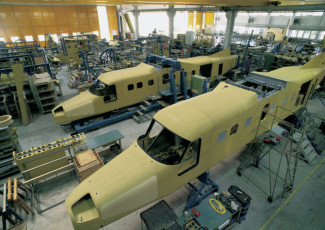In New York, Training the Big Data Workforce
By Reyna Gobel
August 19, 2014
A New York community college partners with three university campuses, part of a $15 million grant for training the state’s data analytics workforce.
Analytics is a hot topic among community college leaders. As pressure mounts to increase completion rates, administrators increasingly want access to data that show how well students are performing. But colleges aren’t the only ones interested in the power of big data analytics. Across the country, companies are hiring trained professionals to help parse data in an effort to improve important parts of the companies’ business operations, from logistics to customer service.
New York state is one place big data business is booming. A joint grant proposal from the College of Staten Island; City College of New York; the Borough of Manhattan Community College; and the Graduate Center, City University of New York asserts that demand for management analysts across the state is on its way up and is expected to spike to nine percent between 2008 and 2018, while the need for market research analysts and marketing specialists will increase by more than 14 percent during the same time period.
That economic reality recently prompted New York governor Andrew Cuomo to award $15 million to a consortium of two- and four-year colleges for the creation of a new cross-institutional graduate certificate program to train the state’s growing data analytics workforce. The award is part of a broader $55 million grant for job training at colleges across the state. Program administrators say each participating college was chosen because it had something unique to contribute to the consortium.
For example, the College of Staten Island boasts an advanced computer system capable of tremendous analytics that can be accessed from remote locations. The Borough of Manhattan Community College (BMCC), located in the middle of Manhattan’s financial district, provides a convenient access point for working students who want to attend special two-day training courses without leaving the city. In addition to filling in-demand job vacancies, administrators say the project will have an immediate economic impact across the state, generating 154 construction jobs and more than $15 million in wages.
“Every industry requires data analytics,” says Sunil Gupta, dean of continuing education at BMCC. “Data analysts can answer questions, such as, ‘How many people did an internet search for this topic?’ Whole businesses are built to figure out the current demand and purchase trends for products.”
The data analytics certificate program was a year in the making and incorporated insights from leaders at each participating institution. Though the new certificate program meets an urgent need, Gupta says it wouldn’t have been possible if not for the ability of participating colleges to work together on important issues, such as curriculum design and credit transfer.
When it comes to launching cross-institutional initiatives and winning grants to support new programs on campus, Gupta offers these five tips:
- Determine community needs by analyzing the local workforce. Is there a job sector where access to higher education and training could help workers quickly advance their careers.
- Talk to community-based organizations as well as local colleges and K–12 schools, and be open to effective partnership opportunities.
- If your college is missing an important resource or program, check to see whether that resource or program is available at another college in the same system or area.
- Work on grant proposals together. A grant is more likely to be approved if multiple colleges will benefit.
- Encourage college presidents to take the lead, and create internal and external systems to support their efforts.
Has your college ever worked with partner colleges to win an important grant? Tell us about it in the Comments.













